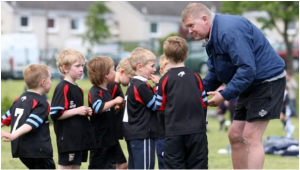Team Sports coaching such as football and rugby can be both a fun and rewarding experience, even if it’s only voluntarily helping teach the kids of your local youth team. Through a mixture of formal teaching methods like drills and a more personal approach, you will be getting more deeply involved with the sport and helping others to develop their skills by passing on your own knowledge.

But how do you get started in coaching and, more to the point, how do you make sure you get off to a good start where your contributions will be valued? There are a few things you might like to try in order to not only get involved with coaching but make it a success.
Take a Course
Whether this is really a good idea or not depends on the kind of coaching you want to go in for. If you want to volunteer to provide some extra coaching help at your local club, it’s probably not worthwhile. If you want to get involved fairly seriously in coaching, a course might be useful to have under your belt. If you want to really seriously get involved with coaching, perhaps getting paid to do it professionally or being heavily involved with a local club or team, it could be a necessity. A course will give you in-depth knowledge of good training techniques and best practices, preparing you for the demands of any coaching position.
Build Resources
Coaching may be about teaching others, but you will be best placed to do that if you are also learning yourself. Even if you have completed a formal coaching course, learning can still be an ongoing process. It is often a good idea to build up a personal “library” of resources that will help you expand your knowledge of tips, techniques and training methods. You also want to ensure that you have all the necessary equipment such as rugby ball and Junior Football Kits such as the ones you can find at kitking, along with training items such as cones and goals, etc
Volunteer
Even if you intend to move on to more serious rugby coaching, volunteering to help out at small local clubs or with youth teams can be a useful start. It will give you valuable experience of coaching and help you to hone your skills in a practical way in an environment that is less challenging than being a team’s primary coach.

